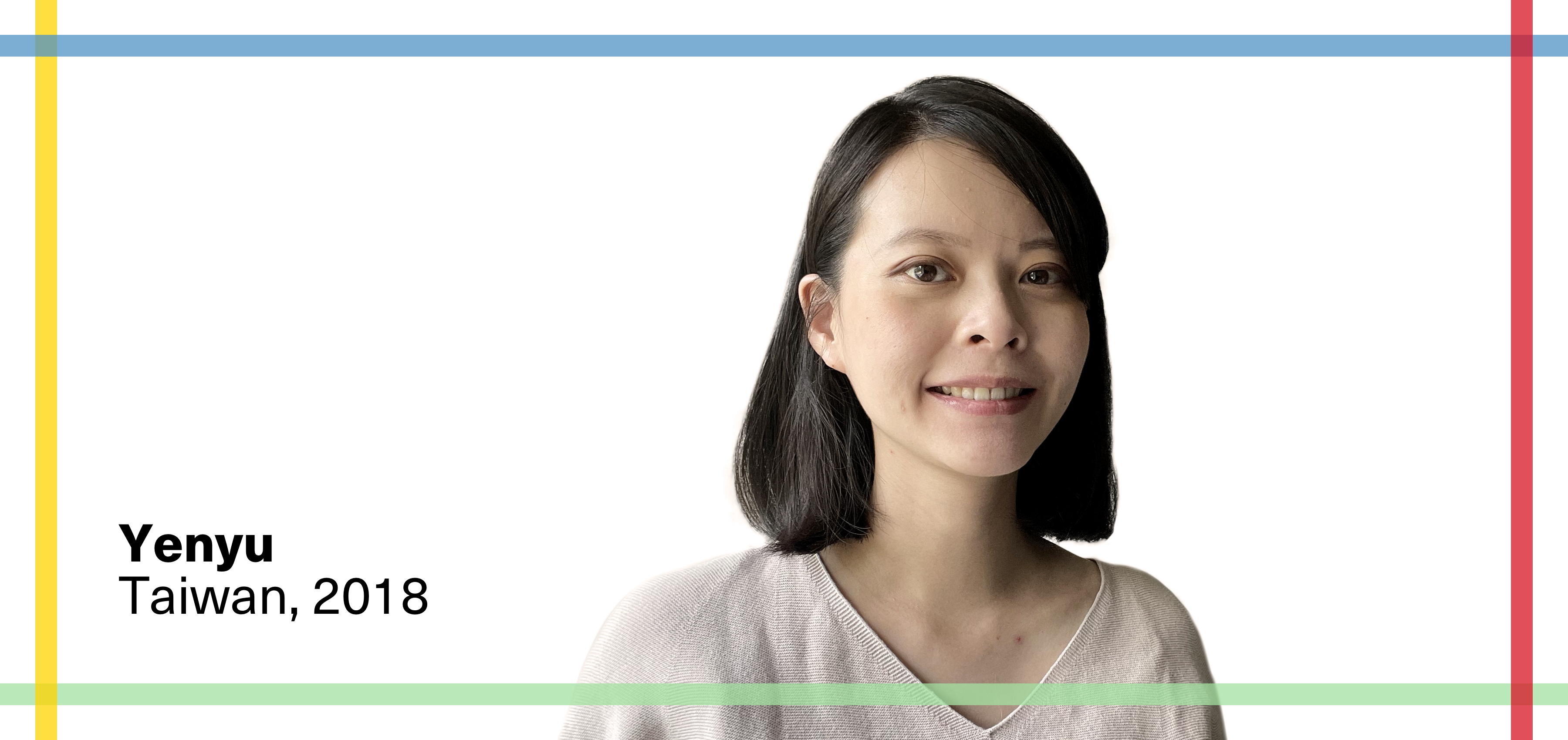From an interview with Yenyu Lai.
After graduating from university in Taiwan with a major in music, Yenyu Lai went into the music industry as a recording engineer and composed music for television and commercials. The post-production field was highly stressful, so after several years, she took the opportunity to teach music at a high school specializing in the arts. During that time, Yenyu’s husband bumped into a friend who had immigrated to Canada, so they decided to look into it. Her husband applied for a working holiday visa and Yenyu pursued her dream of studying abroad. From adjusting to a brand new culture, learning English, and eventually helping international students pass their English language tests, Yenyu speaks about challenges and opportunities of starting a new life and a family in Canada.
One day, my husband bumped into his neighbour who had moved to Canada and was back in Taiwan for a vacation. She said, “I think Canada is a good place. Why don’t you come over and see what it’s like?” So we decided to go to Canada and see what we could do there. I had always dreamed of studying abroad, and as a teacher, I was curious about how different countries taught their students. I saw this as a good chance to learn in a different country and experience a different life. We’ve been in Canada for three-and-a-half years now.
My husband did some research into Provincial Nominee Programs (PNP) and he found that the Manitoba Provincial Nominee Program (MPNP) seemed to present an easier path to immigration than if we were to go to another province like Ontario, so we moved to Winnipeg, Manitoba. When I was in Taiwan, I applied to the University of Manitoba (U of M). The tuition fees were a little cheaper than other Canadian universities. I also researched to see which advisors were taking students that year and found my professor, who also specialized in music.
A new culture comes with new challenges
Adapting to the Canadian culture was definitely a big challenge. I can still recall the first day I met my advisor at university. It was the day after I arrived in Manitoba and I was so jet lagged. She was very friendly and the first thing she said when I entered her office was, “How are you?” I responded, “Oh, I’m so exhausted!”
She seemed a little taken aback by my answer. In Taiwan, we would answer the question directly. In Canada, people are used to a polite and expected an answer like, “Oh, I’m well. How are you?” They are not really looking for an honest answer. If someone asks you how you are doing, you don’t answer, “not good.”
We have a similar greeting where I’m from in Taiwan. We usually ask people, “Have you eaten yet?” It basically means, “How are you?” But you really don’t want to know if the person has eaten.
English Language skills are important
We learned English in Taiwan—it was a mandatory subject in high school—but we didn’t practice it in the real world. So, when I first came to Canada, I could understand 60 per cent of what the professor was talking about in a class, but I felt really overwhelmed when I had to speak. My academic advisors suggested some English language courses, which helped. But it takes time.
Learning English on the job
My first part-time job was in a food court and that’s where I started learning English on the job. I got the chance to talk to many customers and learn basic conversational English, like how to greet people, how to order, and I learned to calculate the money here. Getting a job is a very practical and useful way to improve your English language skills and get to know Canadian culture.
Teaching English as a second language (ESL)
One of my peers told me about a private institution that was looking for ESL teachers. Most of the students were from China, so they needed teachers who spoke both English and Mandarin. The students needed a high IELTS score for their immigration applications and, because of our help, they were successful. That’s a good feeling.
Becoming a permanent resident changes things
I remember when my husband was looking for a job, the first question was always, “What’s your status in Canada? Do you hold a working visa, or do you hold a PR status?” Some companies wouldn’t want to hire him because he was only holding a working visa. I think it meant more processing work for the hiring manager.
It was also a challenge trying to rent a home. Before we had our permanent residence (PR), some real estate agents would say, “Okay, because you’re only an international student, and you only have a work permit, you’ll need to make a larger deposit.” Even when I said, “It’s not right. It’s not legal”, they said, “Okay, then we can’t rent the house to you.” Just because we didn’t have PR status. They said, “You might leave the country and owe us rent.”
After working for six months, my husband started the application for permanent residence. I think it took about two years to finish the entire process, but it’s a relief to have our PR status. After we got the PR, everything became more normal. We feel more equal to people now.
Our future goals in Canada and tips for newcomers
We are expecting our first child at the end of August. I’m almost there, and pretty scared.
My immediate goal is to deliver this baby safely—that’s the short-term. Our long-term goal is to look at other cities, like Toronto, or Vancouver. We came from Taipei, the capital of Taiwan. So after several years of living in Manitoba, we’ve realized that we’d still like to live in a big city.
Teaching is my ultimate career goal, and I’m thinking of getting an early childhood education (ECE) certificate. I hope to combine my musical education with early childhood education. Using music to teach little children is a great way to guide them and facilitate their learning. I will also be dealing with a newborn.
My advice to newcomers moving to Canada is to be brave. You have to be several times braver than you were at home. I’m an introvert, but it’s very important, especially here in Canada, to communicate and connect with others, whether you’re looking for a job, communicating at school, in an interview, or going out for dinner.
If I were to change the way I did things when moving to Canada, I would have practiced English more at home and I probably would have researched more, especially about the culture here. Things are not going to be what you imagined, but forget about your expectations and just do it.




